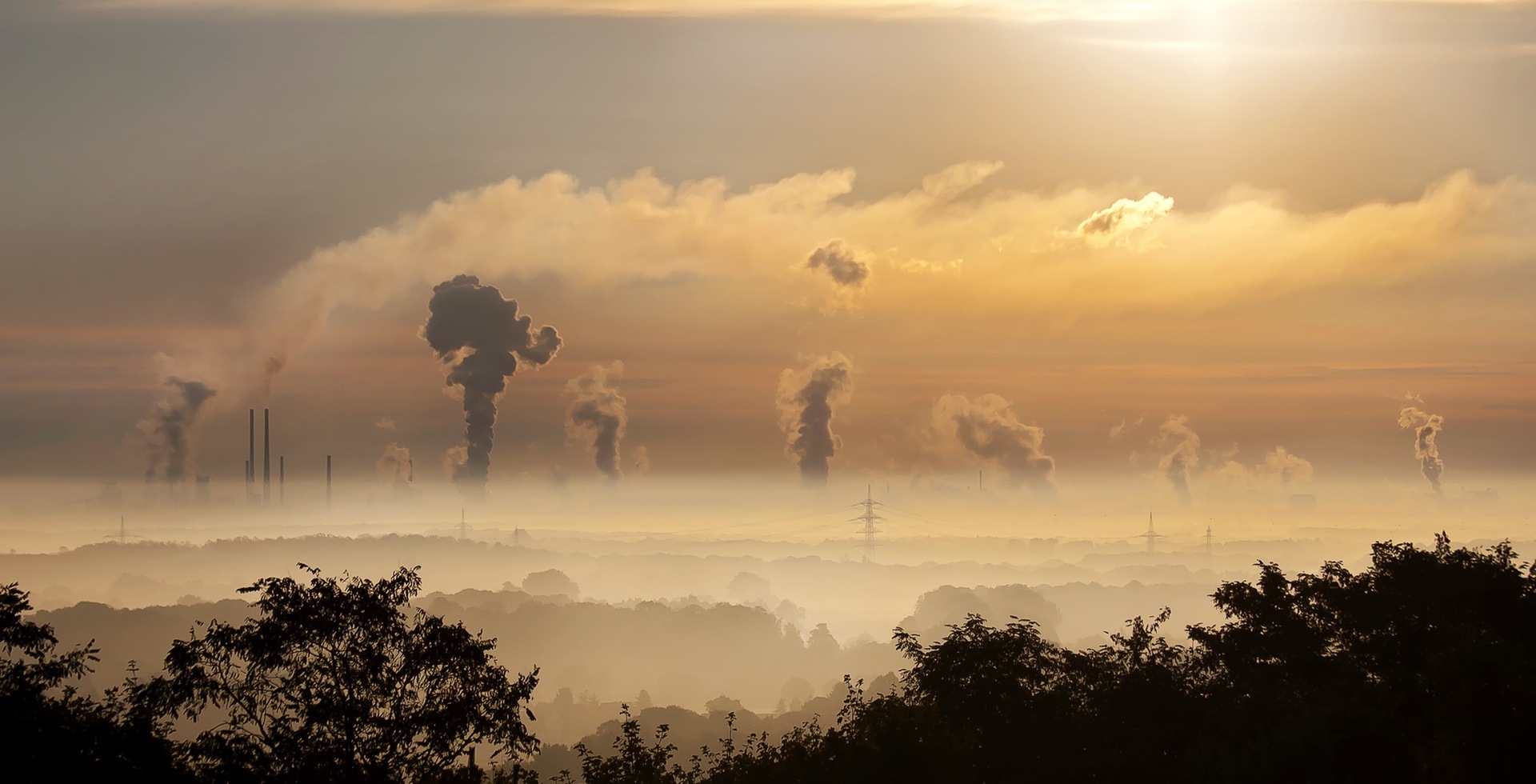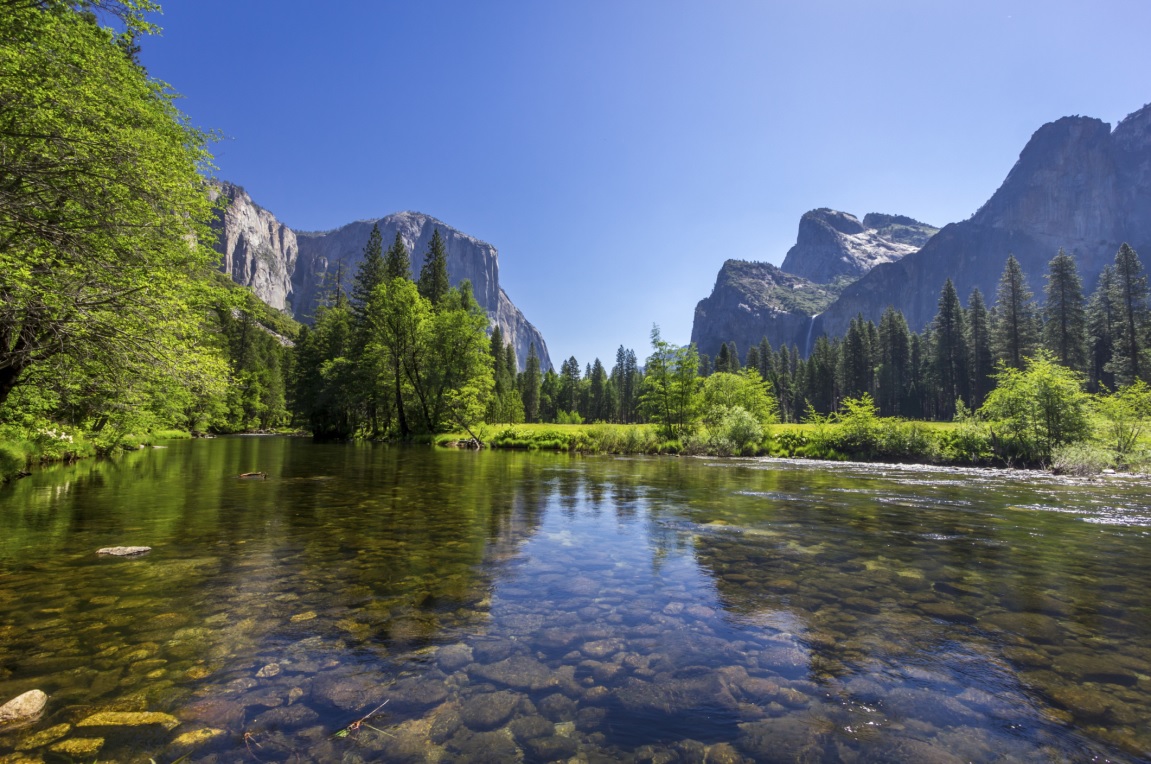The vote has been cast, democracy has spoken and Donald Trump is set to be the United States of America’s 49th President. A little hard to believe for some but a momentous occasion for others: the election result has certainly created divisive opinions and actions across the world, and Trump continues to be the provocateur we have come to know throughout his campaign.
Trump’s opinion about the environment is no exception: suddenly, his previous stance as a non-believer of man-made climate change seems to have shifted and taken a step in the right direction, as the recent conversation with New York Times journalists has revealed. Yet, how much can we believe? Trump is in the perfect position to persuade Republicans that climate change is a real global threat but the question is: Will Trump use this opportunity to continue the fight and make environmental issues a priority?
President Barack Obama has made great leaps in his Clean Power Plan (CPP), an intensive regulatory, federal rule formulated with the hope of safeguarding the next generation from the impact of fossil fuel industries, but now it appears in jeopardy. So before Trump enters the White House, it is important to be clear on what has already been said, understand where Trump’s influence is weak, and whether his sudden open-mindedness will be significant.
The Ugly
During his campaign, Trump spoke about global warming as a “hoax” and a Chinese fabrication, something he later admitted to having been a joke, yet, putting his so called “jokes” aside, Trump has clearly stated that he would scrap Obama’s Clean Power Plan that was recently finalized by the Environmental Protection Agency.
During the face-to-face interview with the Washington Post’s editorial board back in March, Fred Hiatt put two simple questions to Trump: “[Do] you think climate change is a real thing? Is there human-caused climate change?” Trump’s response: “I think there’s a change in weather. I am not a great believer in man-made climate change.” A huge part of the problem seemed to be convincing Donald Trump that man-made climate change is happening; an obvious and literally burning issue with overwhelming scientific evidence. In the same interview with the Washington Post, Trump offered his reasoning for ignoring such a detrimental issue: “I just think we have much bigger risks… I think we have militarily tremendous risks… I think our biggest form of climate change we should worry about is nuclear weapons.”
IN THIS PHOTO: DONALD TRUMP SPEAKING WITH SUPPORTERS AT A CAMPAIGN RALLY, ARIZONA. PHOTO CREDIT: GAGE SKIDMORE, FLICKR.
Trump’s seemingly blatant unconcern for environmental policies is further proven in his appointment of climate change denier, Myron Ebell, as the next leader of the Environmental Protection Agency (EPA). A frightening transition that announces that ‘the Trump team is looking to drastically reshape the climate policies the agency has pursued under the Obama administration.’ Myron Ebell is known for his clear stance against science by claiming that climate change is nothing more than “alarmism”. Ebell is also ‘chairman of the Cooler Heads Coalition’, a non-profit group which directly ‘oppose[s] energy-rationing policies.’
Make your voice heard, sign the Climate change petition: Tell Congress to Pass a Carbon Tax, Climate Protection and Justice Act – For the United States and for All.
The Bad
In conversations centered around his first 100 days in office, Trump formed many decisions that would be at great detriment to the environment and current policies in motion, not only the undoing of the CPP but also vowing to withdraw from the Trans-Pacific Partnership Agreement (TPPA), a trade agreement involving twelve countries around the Pacific rim. The agreement, following 7 years of negotiations, was finalized and signed in February; it will not only serve to promote economic growth and reduce poverty, but it is also vital for intensification of labor and environmental protections.
Donald Trump also vowed to ‘lift the restrictions on the production of $50 trillion dollars’ worth of job-producing American energy reserves, including shale, oil, natural gas and clean coal’, a decision that would completely undermine Obama’s CPP. Trump’s plans to also approve the fourth phase of the Keystone Pipeline, rejected by both Obama and Hilary Clinton, is a move that will cause huge oil spills and a 20 percent increase in greenhouse gas emissions due to the methods of oil extraction.
However, what has perhaps caused the most disbelief around the world is Trump’s declaration to withdraw from the Paris climate agreement entirely; an accord not ratified by the Senate but a huge step towards creating global plans to preventing the global temperature reaching 1.5°C. The recent U.N climate change meeting following the election in Marrakesh, Morocco gave hope to the agreement as ‘ministers and diplomats…. insist a Trump administration cannot derail the massive momentum of the global transition to a low-carbon economy, already well under way.’
Yet, despite the commitment of the rest of the world, an analyst from Christian Aid highlighted that “other countries would not contribute the emissions reductions commitments that the US is required to undertake”. And one can expect the same will happen regarding “climate finance” – a contentious issue as fears are rising that developed countries, the US foremost among them, will not meet their pledge to provide at least $100 billion a year starting in 2020 to help poor countries hit by climate change.
Related article: “WAS THE ELECTION OF TRUMP REALLY THAT MUCH OF A SURPRISE”
The Good
There is no doubt that Trump will experience huge resistance from environmental groups in the U.S. and all over the world if he decides to act upon on his campaign promises. However, in an article published in the New York Times in May featuring the views of presidential historian Robert Dallek, he commented on Trump and his precarious first 100 days, noting: “Trump is predicting he’ll be able to do all these things, but his workload will be pretty enormous and his power would be so limited by precedent, by the bureaucracy, by the Constitution.” Is this concept of power limited by an institutional framework something that is dawning on Trump in the weeks leading to his presidency?
It is well known that change often occurs when the masses are in full support; politicians’ decisions are often swayed by what will make them more popular. The same article also highlighted that there has been a 7 percent increase in climate change believers over the last two years, raising the total to 73 percent. Surprisingly, “the jump among those who believe in global warming was steepest among Republicans, with a 16 percent increase in two years…, and a 19 percent increase among conservative Republicans.”
What this suggests is that global warming has never been as widely understood by Americans; people’s beliefs have never before been so widely documented. Protests are not only happening in the U.S. but around the world, anti-Trump social media pages are being created daily; if this momentum continues and if his opinions don’t change, Trump will quickly become the most unpopular U.S. president in history.
 PHOTO CREDIT: PIXABAY.COM, PEXELS.
PHOTO CREDIT: PIXABAY.COM, PEXELS.
The tide is changing within economies too; energy surplus is disappearing and power technologies will soon be dictated by price as renewables become cheaper. As Bloomberg recently highlighted, “Trump can’t will the coal industry back to health.” Predictions reveal that “renewable capacity would still be expected to grow more than 4 percent a year until 2040,” so even without Trump’s full support for clean power initiatives, the focus will automatically begin to shift to renewable energy. This coupled with the recent 5-year renewal of wind and solar tax credits that gained “bi-partisan support…. it would be hard for Trump to try to repeal it.” States can continue to offer these types of incentives and “wind is already cost-competitive with natural gas in the U.S.” In fact, the trend to downward costs for renewable energy makes its development impossible to arrest, much less reverse.
The Theory
What previously seemed certain, now is in doubt. Does Trump think the climate is linked to human activity? a New York Times journalist asked last week. The surprising response: “I think there is some connectivity. Some, something. It depends on how much.” Does this mean we should start believing that Trump will do the right thing in relation to the Paris accord following his second remark: “I’m looking at it very closely. I have an open mind to it”? We know that Trump’s campaign was based on provocation and it evidently worked, but since the new revelations in his stance on climate change, how much of it should we take seriously? The Scott Adams’ Blog featured a short piece back in May that aimed to rationalize the extremity of Trump’s views:
“Trump has over fifty years of business experience, and according to all reports, he is a rational person in his private dealings. In public, however, he says all sorts of crazy, provocative, and untrue things.”
Adams outlines how Trumps “deals in hyperbole” and explains a potential reasoning for Trump’s excesses: “He bends the truth when that is the approach that is most persuasive. But he does it right in front of us while explaining that he does it because it works. In an odd way, he is the most transparent candidate [now the next President] we have ever seen.”
But what should we believe when it comes to climate change? Adams suggests a theory about Trump, something he refers to as “pacing and leading”; a strategy that would eventually persuade Republicans that climate change is a real threat. Adams’ blog suggests that Trump was pacing throughout his campaign, “acting like the people you plan to later persuade” and matching the Republican political view on climate change. Republicans now trust that he holds the same views as them and so if Trump is persuaded, “he is the only human being on Earth who can persuade Republicans that climate change is real.” Adams suggests, in order to explain the current detrimental climate situation under President Trump, a type of public show or “spectacle” highlighting arguments from both sides is needed, bringing in both scientists and communication experts. Adams reiterates that Trump has taken the “common sense conservative” stance and therefore suggests letting experts speak about climate change in a public and easily understood manner, appealing to common sense.
What we do know is that popularity and economic progress have never before been so intrinsically linked to environmental responsibility.
IN THIS PHOTO: CLIMATE PROTEST AGAINST KEYSTONE XL PIPELINE. PHOTO CREDIT: STEVE RHODES, FLICKR.
Since November’s election result, politics have shifted; what seemed like resolute environmental policies a few weeks ago could now, potentially, collapse. The U.S., a country up to recently not considered a threat to new environmental initiatives, is now a central topic of concern in political discussions around the world, as the French primaries have shown. Previously “not a big fan” of climate change, Trump is now “keeping an open mind”. So what can we expect next?
What we do know is that popularity and economic progress have never before been so intrinsically linked to environmental responsibility. The increasing impact of climate change as it tears apart the lives of citizens around the world, the U.S. included, will not be an easy topic to ignore.
Recommended reading: “AN HISTORIC COMMITMENT TO PROTECTING THE ENVIRONMENT”













